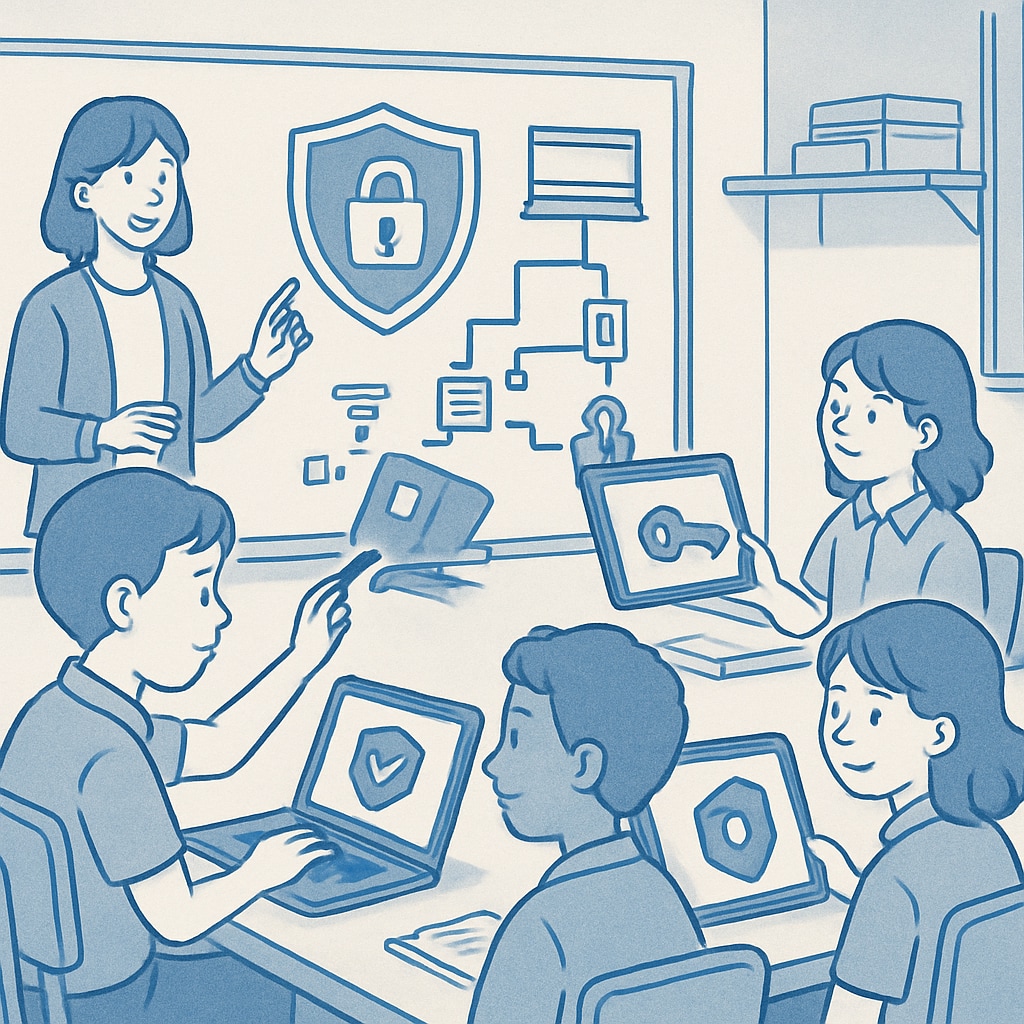As the digital era continues to evolve, the importance of integrating cybersecurity and data science engineering into K12 education has become increasingly evident. These fields not only offer promising career choices but also equip students with essential digital literacy skills to thrive in a technology-driven world. By understanding their significance and implementing effective strategies, educators, parents, and policymakers can help students unlock their potential in these critical domains.
Why Cybersecurity and Data Science Matter in K12 Education
Cybersecurity focuses on protecting computer systems, networks, and data from cyber threats, while data science engineering involves analyzing and leveraging data to drive innovation and decision-making. Both fields are integral to modern industries ranging from healthcare to finance. Introducing these concepts early in K12 education ensures students develop a strong foundation in problem-solving, analytical thinking, and ethical technology usage.
For example, cybersecurity education fosters awareness about online safety, teaching students how to safeguard personal information and avoid cyberbullying. Data science education, on the other hand, helps students understand patterns and trends, empowering them to make informed decisions in their studies and future careers.

Preparing Students for Future Careers in Cybersecurity and Data Science
The demand for professionals in cybersecurity and data science engineering is skyrocketing. According to the Bureau of Labor Statistics, jobs in cybersecurity are expected to grow 35% from 2021 to 2031, significantly faster than the average for all occupations. Similarly, data science roles are projected to increase by 36% over the same period. These statistics highlight the vast opportunities awaiting students who pursue careers in these fields.
- Cybersecurity Careers: Positions such as information security analyst, ethical hacker, and cybersecurity consultant are increasingly sought after.
- Data Science Careers: Roles like data analyst, machine learning engineer, and business intelligence developer offer lucrative prospects.
By exposing students to these fields early, schools can inspire interest and provide a clear pathway for professional growth. Career-focused programs, certifications, and internships can further solidify their aspirations.

Effective Strategies for Implementation in K12 Education
Integrating cybersecurity and data science into K12 curricula requires a collaborative approach involving educators, parents, and policymakers. Here are some key strategies:
- Hands-On Learning: Incorporate interactive workshops, coding boot camps, and real-world simulations to engage students effectively.
- Teacher Training: Provide professional development programs for educators to ensure they have the skills and knowledge to teach these subjects.
- Partnerships: Collaborate with tech companies and universities to access resources, mentorship, and expertise.
- Gamification: Use games and challenges to make learning cybersecurity and data science more enjoyable and relatable.
- Parental Involvement: Encourage parents to support their children’s learning by promoting safe technology use and exploring career options together.
As a result, students will not only grasp technical concepts but also develop critical thinking, creativity, and teamwork skills—qualities essential for success in any field.
The Broader Impact of Cybersecurity and Data Science Education
In addition to career readiness, teaching cybersecurity and data science in K12 education contributes to a safer and more informed society. Students become advocates for responsible technology use, promoting ethical behavior and data privacy. Furthermore, they gain insights into how technology impacts global challenges, such as climate change and healthcare innovation.
By equipping students with these skills, schools lay the groundwork for a generation capable of addressing complex problems and driving progress in a digital world.
Conclusion: Cybersecurity and data science engineering are more than just career choices—they are essential components of modern education. By prioritizing these fields in K12 curricula, educators and parents can empower students to navigate the digital landscape confidently and prepare for fulfilling careers. As industries continue to rely on technology, the demand for skilled professionals will only grow, making these subjects critical for future success.


